Solidarity, unity, urgency.
That was the resounding call by world leaders at the recent 75th session of the United Nations General Assembly (UNGA). That was the call not only for the 193 members, but also for all humankind in cities and rural villages, business leaders and private citizens, the young and the old, around the globe.
Collective action is paramount as the world now faces multiple crises: the epochal COVID-19 pandemic, the largest economic calamity and job losses since the Great Depression, and an urgent climate catastrophe before us, warned Secretary-General António Guterres.
The urgency to act in unison, in big ways and small ways, has never been clearer. Throughout this year’s mostly virtual meeting, leaders, activists, nongovernmental organizations, and so many others around the globe all repeatedly stressed how progress is being eroded in such critical areas as poverty, gender equality, and economic and social well-being.
But amid the calls for urgency to address the crises the world faces, there was also optimism that through more inclusive global cooperation and solidarity, we can achieve the world we want and start the hard work toward a better recovery.
Many powerful, moving words were offered at this year’s meeting, highlighting the gravity of the moment. Our hope is to see these words take shape, through greater, more inclusive global cooperation, and tangible, scaled-up action to deliver the world we want: a world where we all emerge stronger from the pandemic, where we defeat the climate crisis, end racism and inequality, guarantee peace and security for all, and protect and accelerate progress for everyone through fierce commitment to the Sustainable Development Goals (SDGs).
Here are six memorable UNGA moments to know about:
1. UN Secretary-General António Guterres: COVID-19 is a dress rehearsal of challenges to come.
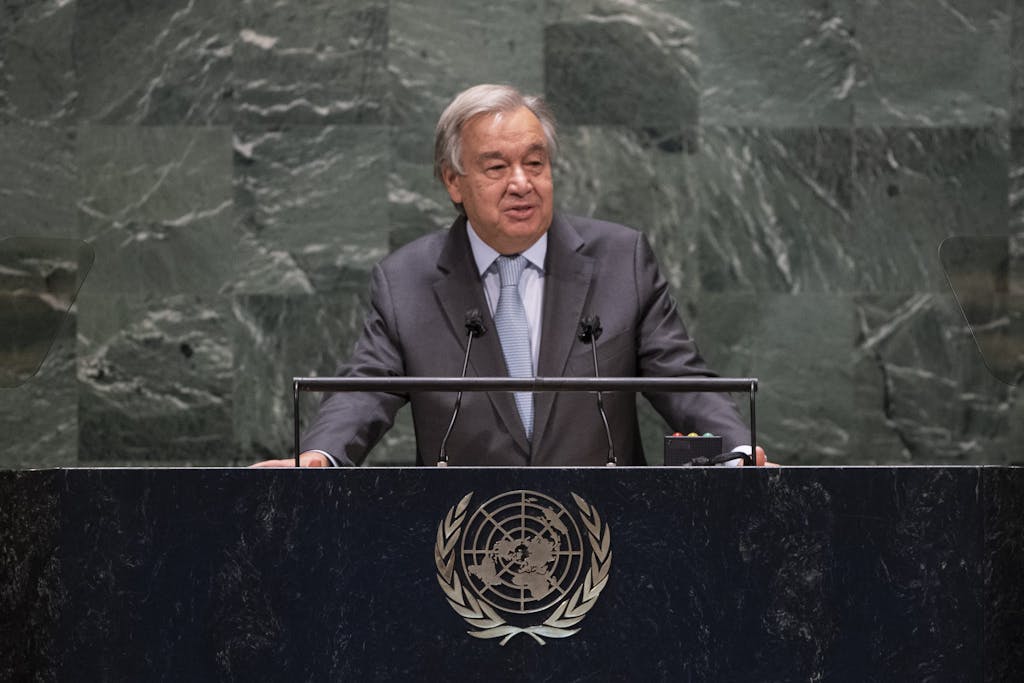
In his address to the General Assembly, UN Secretary-General António Guterres added a fifth “horseman” — COVID-19 — to the list of four collective threats he had highlighted earlier this year as our greatest challenges:
- global geo-strategic tensions,
- an existential climate crisis,
- deep and growing global mistrust, and
- the dark side of the digital world.
He emphasized a need for global solidarity, particularly with those most affected by the pandemic:
The pandemic is a crisis unlike any we have ever seen. But it is also the kind of crisis we will see in different forms again and again. COVID-19 is not only a wake-up call, it is a dress rehearsal for the world of challenges to come. We must move forward with humility, recognizing that the microscopic virus has brought the world to its knees. We must be united. We have seen, when countries go in their own direction, the virus goes in every direction. … Solidarity is self-interest. If we fail to grasp that fact, everyone loses.
2. UN Deputy Secretary-General Amina J. Mohammed: The world needs nature-based solutions for long-term resilience and stability for all.
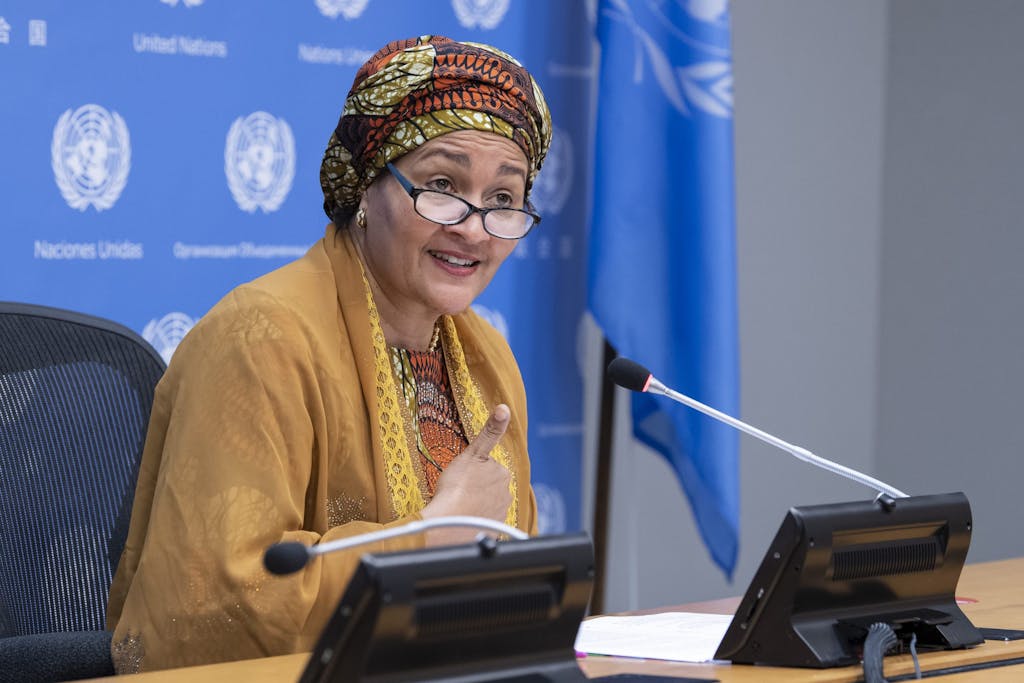
Speaking at the UN Biodiversity Summit, UN Deputy-Secretary General Amina Mohammed reiterated the urgent need to preserve global biodiversity and address ecosystem loss. She urged the global community to place biodiversity at the center of planning and development:
Today, climate disruption, from devastating wildfires to record floods, is causing immense damage to people and economies and accelerating nature loss. Yet the irony remains that nature-based solutions offer some of the best remedies to global heating and its impacts on societies. That is why these nature-based solutions need to have a place in the more ambitious nationally determined contributions that we need for long-term resilience and stability for all.
3. Chinese President Xi Jinping: “Humankind should launch a green revolution.”
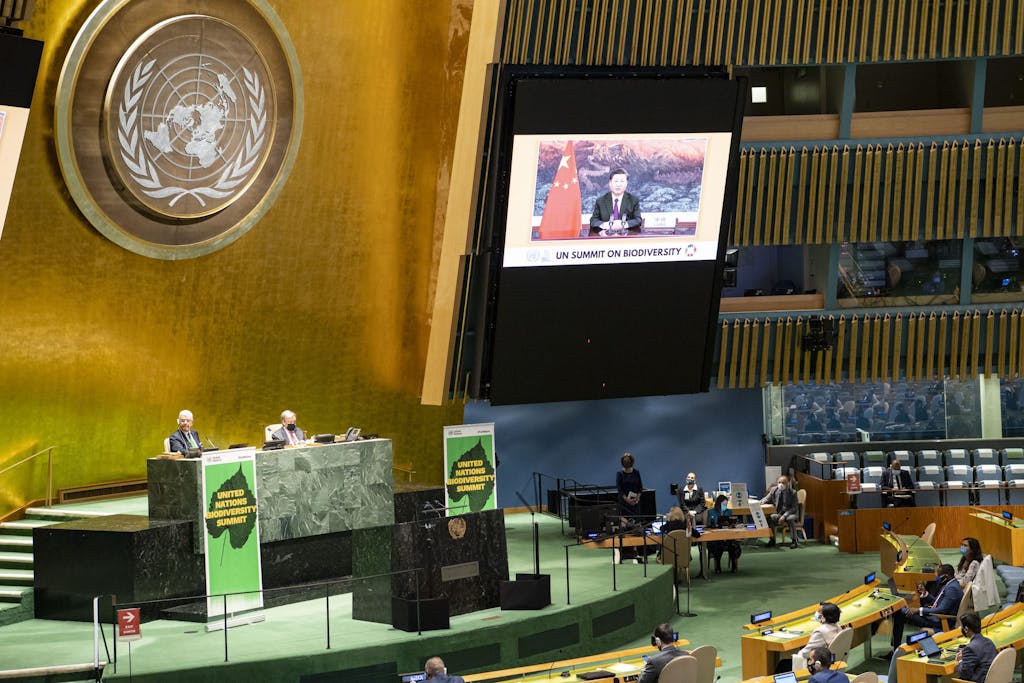
At the UN General Assembly, Chinese President Xi Jinping called for renewed commitment to honoring the Paris Agreement as a blueprint for achieving a green post-COVID-19 recovery:
COVID-19 reminds us that humankind should launch a green revolution and move faster to create a green way of development and life, preserve the environment and make Mother Earth a better place for all.
China will scale up its Intended Nationally Determined Contributions by adopting more vigorous policies and measures. We aim to have CO2 emissions peak before 2030 and achieve carbon neutrality before 2060. We call on all countries to pursue innovative, coordinated, green and open development for all, seize the historic opportunities presented by the new round of scientific and technological revolution and industrial transformation, achieve a green recovery of the world economy in the post-COVID era and thus create a powerful force driving sustainable development.
4. French President Emmanuel Macron: “There will be no miracle cure to the de-structuring of the modern order.”
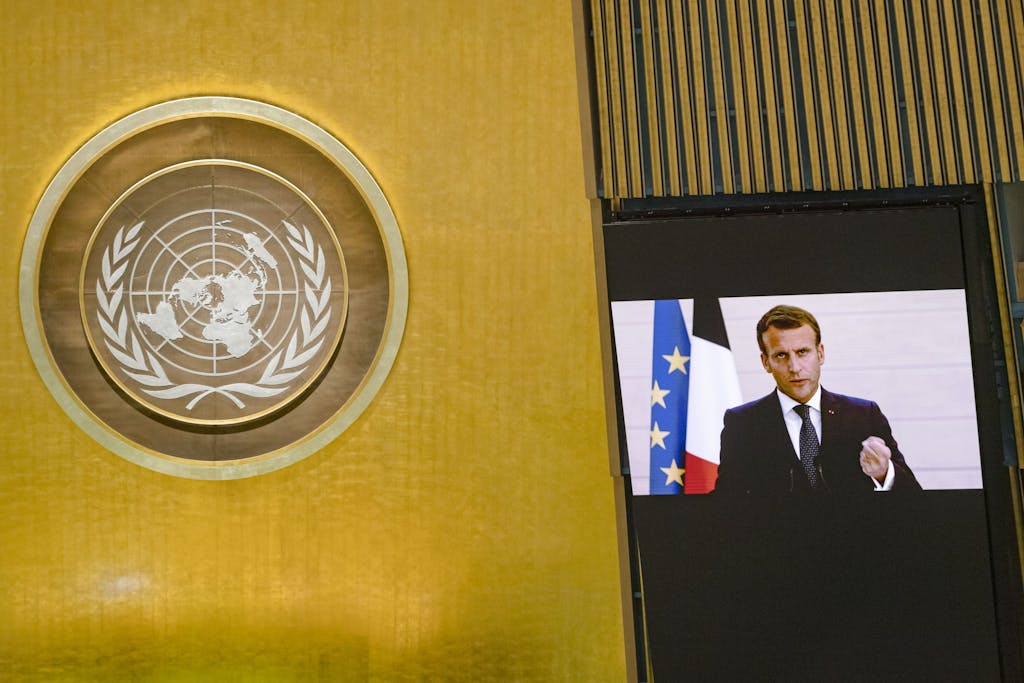
In his remarks at the UN General Assembly, French President Emmanuel Macron urged cooperation and warned that in our interdependent world, challenges require multilateral solutions:
Multilateralism is not just an act of faith; it is an operational necessity. No country can overcome this challenge alone. International cooperation may be difficult, but it is objectively essential. Nonetheless, we can no longer settle for a multilateralism of words, which merely serves to agree on the highest common denominator, as a way of hiding deep divides behind a façade of consensus. We need to find a new method, reverse the terms of the contract, and ensure our voice is heard loud and clear when others pride themselves on signing up to alliances and their principles, organizations and their principles, just to trample them in reality.
5. Juliana Makonise, young human rights defender from Zimbabwe: The money is not important – human life matters.
Speaking at “Building Back Better for Everyone & with Everyone,” an event co-hosted by the UN Foundation, about protecting civil society space, Juliana Makonise, a young human rights defender from Zimbabwe, urged international institutions to hold governments accountable:
I believe that the more international organizations intervene when there are human rights violations, when there are so many perpetrations that are being done towards the people, that itself would be very effective. They need to call out the governments when they do things that are not according to human rights or that are just degrading people. Because at the end of the day, the money is not important, the minerals that we have are not important. But human life matters. That’s why we say Zimbabwe lives matter, African lives matter, we all matter. So our lives really need to be prioritized.
6. Malala Yousafzai, UN Messenger of Peace: “So far you have not kept up your word. So, I’d like to know, When?”
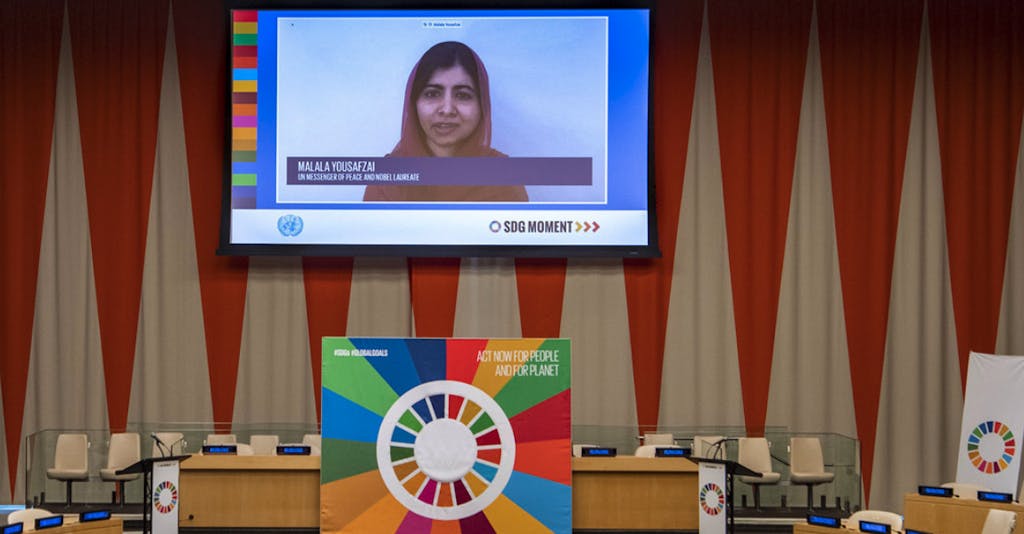
At the UN SDG Moment, UN Messenger of Peace Malala Yousafzai lamented the lack of progress made on achieving the SDGs:
Five years have passed since the United Nation members agreed to the Sustainable Development Goals — these goals represent the futures of millions of people. Of girls who want to go school, of women who fight for their rights, and of young people who fight for a clean air and a safe planet. So far you have not kept up your word. So, I’d like to know, “When are you planning to do the work? When will you commit the to necessary funding to give every child …12 years of quality education? When will you prioritize peace and protect refugees? When will you pass the policies to cut carbon emissions?”




 View All Blog Posts
View All Blog Posts


